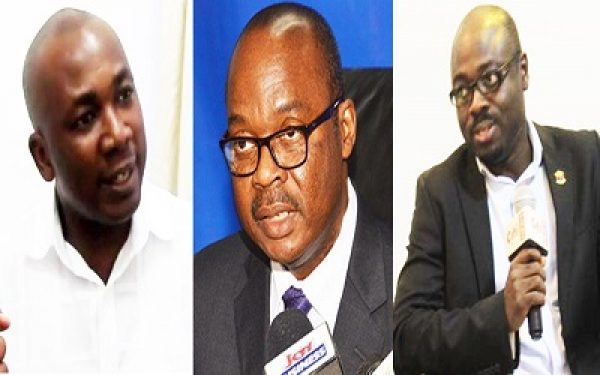Economists laud BoG over 550 basis points cut in policy rate
- Posted on
- Comment
The Central Bank has for the last 10 months of 2017 cut benchmark interest rate by a total of 550 basis points, from 25.5 per cent in January to the present 20 per cent.
“From the monetary perspective, the Central Bank is doing all the right things; they have done their part, they have sustained a reduction in policy rate so what is important is to see how this interplays with other constraints to doing business that ultimately would lower lending rates,” Head of Finance at the University of Ghana Business School, Professor Godwin Bokpin told this paper.
According to Prof Bokpin, there is a compelling reason now for government to focus its attention on universal banks and why lending rates have not responded equally to the policy rate cuts.
Another economist, Dr Lord Mensah explained that the conscious efforts of government and the BoG to consistently reduce the policy rate while being mindful of inflationary pressures show that “this is a government that has the objective of empowering the private sector.”
“Under an IMF programme with austerity, the only way out is to make sure you create the serene environment for the private sector players to thrive, “he added.
According to him, the business friendly environment should be one of low interest rates from commercial banks to facilitate easy access to credit among other factors.
Dr Mensah pointed out that the sustained decline in policy rate of the BoG, coupled with the persistent drop in treasury bill rates demonstrate government’s waning appetite for borrowing from the local market.
“Government is obviously not ready to compete with private sector for the few funds in the market,” he said.
After taking office in March this year, Governor of the Bank of Ghana (BoG), Dr Ernest Addison in his first interaction with journalists in May said “it will not be business as usual.”
His outfit was poised to employ refined tools and resources to secure economic growth while keeping inflation to acceptable limits.
Policy rate sees sustained decline
The Bank reduced the Monetary Policy Rate (MPR) by 200 basis points to 23.5 percent in March with inflation then at 13.2 per cent (February 2017).
The policy rate saw a further reduction by 100 basis points to 22.5 per cent in May, 2017 even though some economists had at that time expected more from the BoG.
With inflation at 12.8 percent in June, 2017, the Monetary Policy Committee at its 77th meeting in July decided to reduce the policy rate by 150 basis points to 21 per cent, signaling an improving economy.
Implications for 2018
While Governor Addison is confident that the rate cut would reflect in the reduction of lending rates by commercial banks, economists say the banks no longer have excuses not to respond positively.
“Our expectation is that in the long run, the banks will cut down on lending rates and not attribute their inability to reduce lending rates to risks associated with customers,” Economist, Dr Mensah.
Boost for Private sector
In real terms, credit to the private sector will be expected to soar as interest on commercial banks lending rates drop.
Indeed data from the BoG shows credit to the private sector improving steadily between January and November.
“Credit to the private sector showed a rebound, increasing by 5.9 percent, on year-on-year basis, in March 2017 after contracting by 6.9 percent same period last year,” the BoG stated.
Fitch had earlier predicted an end-year policy rate of 20.50 percent for 2017, explaining that “while headline growth is rebounding as a result of an uptick in oil production, policymakers have expressed continued concerns over tepid credit growth and weak private consumption”.
BMI therefore expects the regulator to continue lowering the benchmark interest rate through the rest of 2017 to 2018 to help stimulate the economy, forecasting that the policy rate will end 2017 at 20.50 percent and end 2018 at 18.00 percent.
Inflation reduced to 12.1 percent at the end of June 2017, from 15.4 percent
at end December 2016 while interest rates are on the decline.











 (Selorm) |
(Selorm) |  (Nana Kwesi)
(Nana Kwesi)